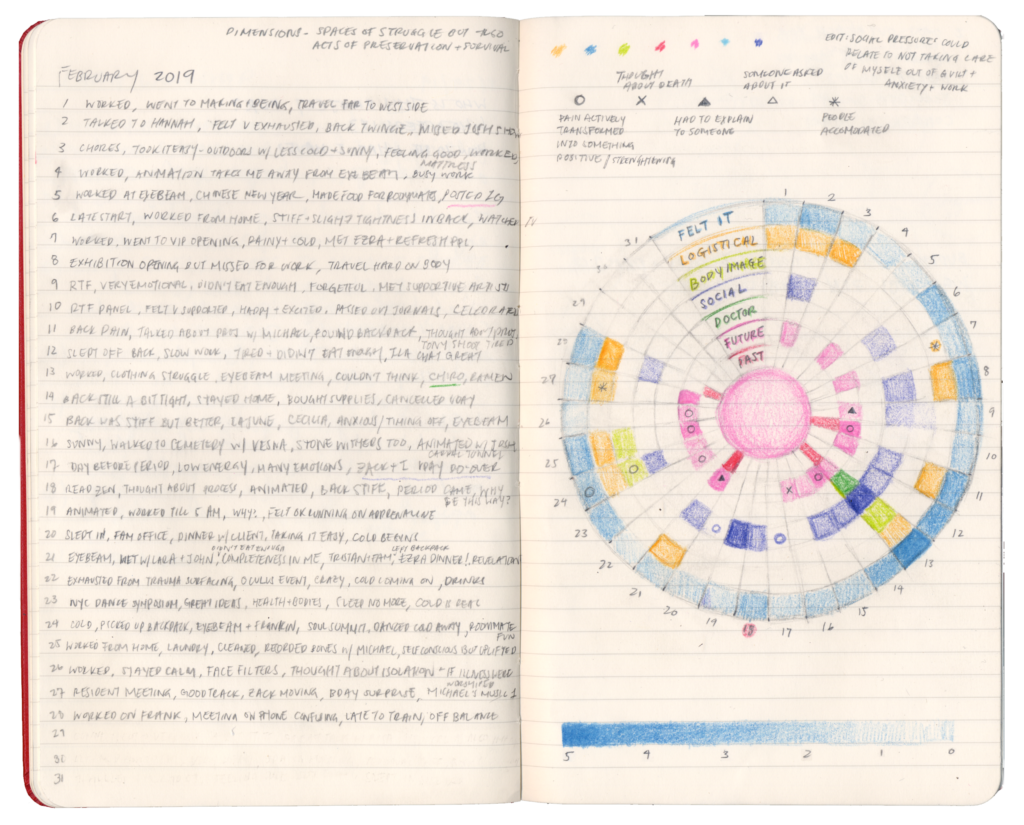Calling Up Justice believes in the art of self-reflection and journaling for empowerment. This tool designed by Yo-Yo Lin uses the idea of data-tracking as an objective tool for holding space for illness. Yo-Yo Lin seeks for The Resilience Journal to be a self-reflection, advocacy, and community-building tool, residing on the shoulders of Disability Justice giants.

FROM https://www.yoyolin.com/resiliencejournal
“The Resilience Journal is a tool dedicated to visualizing the overlooked, soft data in our lives. I created this journal as a means of tracking my illness experience in a way that felt more representative of how I experience chronic illness. Soft data (as opposed to hard data) is nuanced, fuzzy, qualitative, expressive– this is something I see very little datasets of when it comes to illness.
For the year of 2019, I have been tracking 7 different dimensions of my illness every day: Feeling it (chronic pain), logistical problems, body image, social pressures, doctor’s visits, future visions, and past memories. I have been doing this as a means of holding space for illness— giving it a consistent, ritualistic place to be honored for what it is in its wholeness— while also considering how this could be used as an advocacy tool.
Over the months, I have been giving prototypes to friends with chronic conditions, getting feedback, giving presentations, and holding journaling and movement workshops for the chronically ill and disabled. In these workshops we would use the journal as a framework for conversation, active listening, and creative expression with our bodies and minds. I began to realize that the journal served more than just a personal tool for myself to keep track of the nuances of living with a chronic condition– it became a collective access point for acknowledgement and self-acceptance– giving people a tool to put into words, images, and ritual their complex living experience on their own terms.
With support from Eyebeam, Laundromat Project, and Denniston Hill, I am excited to release the first edition of the Resilience Journal. I am looking forward to seeing how people will use this– as a conversation, a tool, a data artwork, or beyond. The Resilience Journal is designed to illuminate the ill/disabled experience, make space to honor pain, and hopefully over time, become a living data archive of acts of resilience by chronically ill and disabled bodies.”

